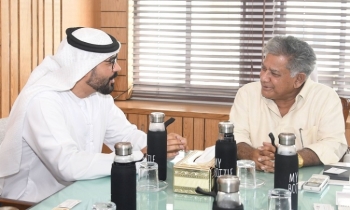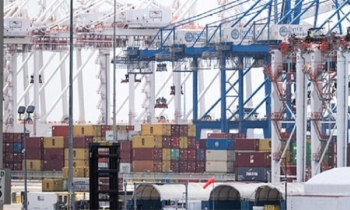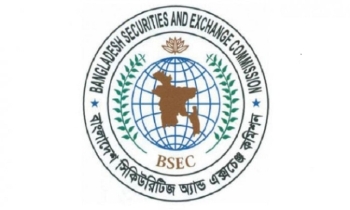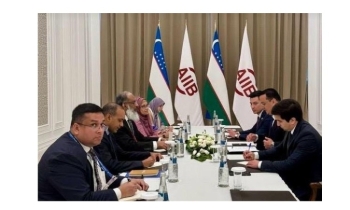Bangladesh, India, Nepal & Sri Lanka for cost cut in remittance
BI Desk || BusinessInsider
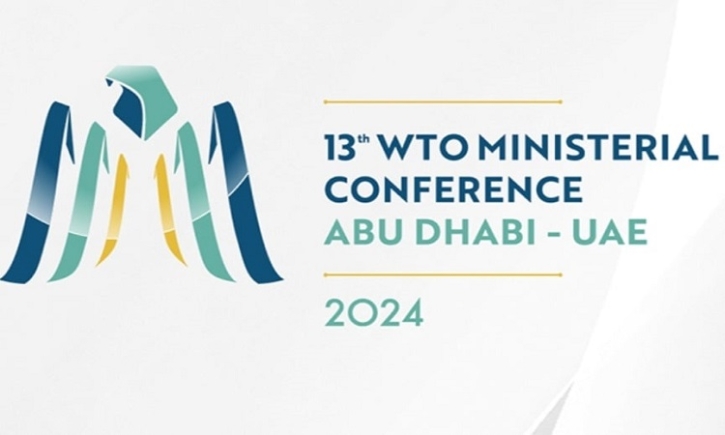
Photo: Collected
Bangladesh, India, Nepal and Sri Lanka jointly submitted a communication at the ongoing 13th Ministerial Conference (MC13) of the World Trade Organization (WTO) yesterday seeking a work programme on facilitating the cross border remittance.
The communication was initially placed by India in the second week of February. Bangladesh, Nepal and Sri Lanka backed the Indian move and thereafter the four countries jointly submitted a revised communication to include it in the ministerial decisions, reports BSS.
MC13 of the WTO is taking place in Abu Dhabi, United Arab Emirates (UAE). Formally started on Monday morning at Abu Dhabi National Exhibition Centre (ADNEC), the four-day high-level conference is scheduled to end on Thursday.
Welcoming the decision of the WTO Committee on Trade in Financial Services to hold a Thematic Session on 'Cost of Remittances' in March 2024, the four countries requested that the MC13 instructs the committee to undertake a work programme on six areas.
The six areas are as follows: (i) Understand the development impact of cross-border remittances; (ii) Review the cost of cross-border remittances, trends and developments; (iii) Consider how technology, emergence of new market players, different types of providers and new channels, and consumer behaviour are impacting the cross-border remittance services; (iv) Examine the drivers of cost of cross-border remittances and challenges associated with reducing it; (v) Identify the opportunities created for lowering the cost of cross-border remittances including on account of digitalisation, and emergence of new technologies; (vi) Explore ways to address the challenges and utilise the opportunities related to lowering the cost of remittance services.
The four countries also recommended that the WTO committee maintain a standing agenda item in its meeting, and hold dedicated sessions, to implement the work program with a view to suggest steps that could be taken towards reducing the cost of remittances to the Council for Trade in Services which in turn will report to the General Council.
In this connection, the four members also underscored that MC13 instruct the General Council to review the outcomes of the work program and report on key findings, actions undertaken and recommendations to the MC14.
In the communication paper, the four countries mentioned that cross-border remittances have significant positive contribution towards the socio-economic development of households and communities especially in developing countries including Least Developed Countries (LDCs).
It also mentioned that out of total remittances of $860 billion in last year, around 78 percent or $669 billion went to Low and Middle Income Countries (LMIC). It further added that though the global average cost for sending remittances has declined over time, it remains high at 6.18 percent.
The rate is more than twice the UN approved SDG target, and the experience varies across countries and regions.
"We reaffirm our commitment to the UN SDG Goal 10.c to reduce to less than 3 per cent the transaction costs of remittances and eliminate remittance corridors with costs higher than 5 per cent by 2030 with a view to achieve the primary goal target, that is, 'Reduce inequality within and among countries' which is aligned to the WTO's development agenda," they argued.
They also identified that one of the main factors explaining the growth and demand for cross border payment services is the expansion in international remittances and underlined the need to promote and facilitate trade in these services.
In this connection, the joint communication paper highlighted that one of the means to achieve cheaper, faster, and more transparent and accessible cross-border payments including remittances is 'promoting interoperability and interlinkages of digital payment infrastructures including fast payment systems.'
It added that the global average cost for digital remittances at 4.84 per cent is significantly lower than the cost for non-digital remittances.
Devabrata Chakraborty, Minister Commercial, permanent Mission in Geneva, and a member of Bangladesh delegation at MC13, WTO told BSS that India has made a proposal in terms of reducing cost of remittance, if the proposal is accepted then the cost at the gateway level will come down and Bangladesh will also be benefited.
"Because we're one of the highest remittance receiving countries, so Bangladesh is supporting the proposal on this ethical ground," he added.
Devabrata informed that LDCs and developing countries have a big support in this proposal. Once this proposal is accepted, both the remitters and remittance accepting countries will be benefitted.
Bangladeshi expatriate workers sent $21.82 billion remittances in the last calendar year which was 2.60 percent higher than the previous year.


